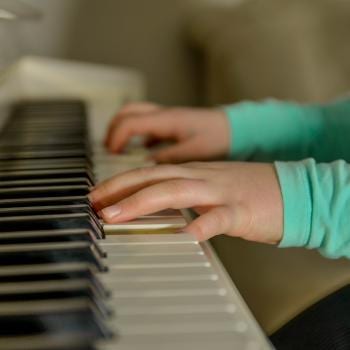Yesterday I finally brought a Christmas mug I was given a couple months ago home from the office. Sally was playing with it in the car, and when I opened the car door it fell out onto the pavement and broke.
“Oh, I’m sorry, mommy!”
Sally was heartfelt and genuine, and that took me aback, because I realized something in that moment. I realized something that hit me in the gut.
When I was a child, “I’m sorry” meant “please don’t hit me.”
Reeling from this realization, I queried Sally about her motivations for saying “I’m sorry,” curious to hear her thoughts.
“I know that maked you sad,” she said, pointing to the broken mug matter-of-factly. “So I sayed ‘I’m sorry’ to try to help you to feel better. I will be more careful with your mug next time.”
Sally’s response made me cry. For those of you who, like me, grew up in authoritarian families and are afraid that you will repeat your parents’ mistakes and ruin any children you might have, know that that is not fated. It can be different. Sally proves that to me every single day.
And now, I can’t get the voices of my past out of my head.
“Mom, I’m sorry! Please don’t spank me! I said I’m sorry! I won’t do it again, I promise! I’m sorry, mom, I’m sorry!”
 “I’m sorry” was a desperate plea, a cry for mercy. It was nothing like Sally’s genuine, heartfelt apology for breaking my mug. And how could it be? When the threat of being hit hangs over your head, how can anything be truly genuine? I even carefully regulated my tears when I was spanked as a child, making sure to cry enough that my mother would know I wasn’t rebelliously refusing to cry but not so much that she would think I was crying angrily and out of rebellion. Everything was calculated carefully, with the desire to avoid being hit.
“I’m sorry” was a desperate plea, a cry for mercy. It was nothing like Sally’s genuine, heartfelt apology for breaking my mug. And how could it be? When the threat of being hit hangs over your head, how can anything be truly genuine? I even carefully regulated my tears when I was spanked as a child, making sure to cry enough that my mother would know I wasn’t rebelliously refusing to cry but not so much that she would think I was crying angrily and out of rebellion. Everything was calculated carefully, with the desire to avoid being hit.
Growing up in a home where physical punishment was administered was like walking around with a noose around my neck, never knowing when it might be pulled tight just to remind me who was boss. I lived my life under the threat of physical violence. But it doesn’t have to be that way. Raising children doesn’t have to mean living a life peppered with threats of violence, or even any threats at all. Raising children can be a cooperative venture based on compassion and a desire for understanding and a willingness to listen.
I’m not pretending that raising children in a positive and healthy way is never challenging or difficult, but believe me when I say that it is more than worth it—for me as much as for Sally.














